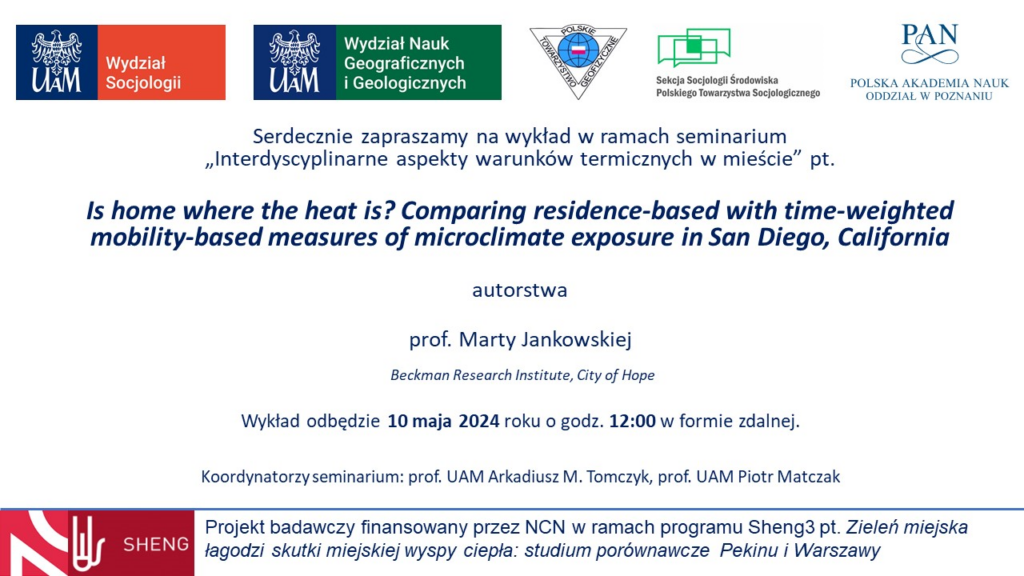Do you live in Warsaw?
Show us where there are areas covered by trees you value. Also point out where you are missing them.
We are launching the second phase of the survey on urban greenery, in which everyone can participate.
And help us improve the management of greenery in places important to you!
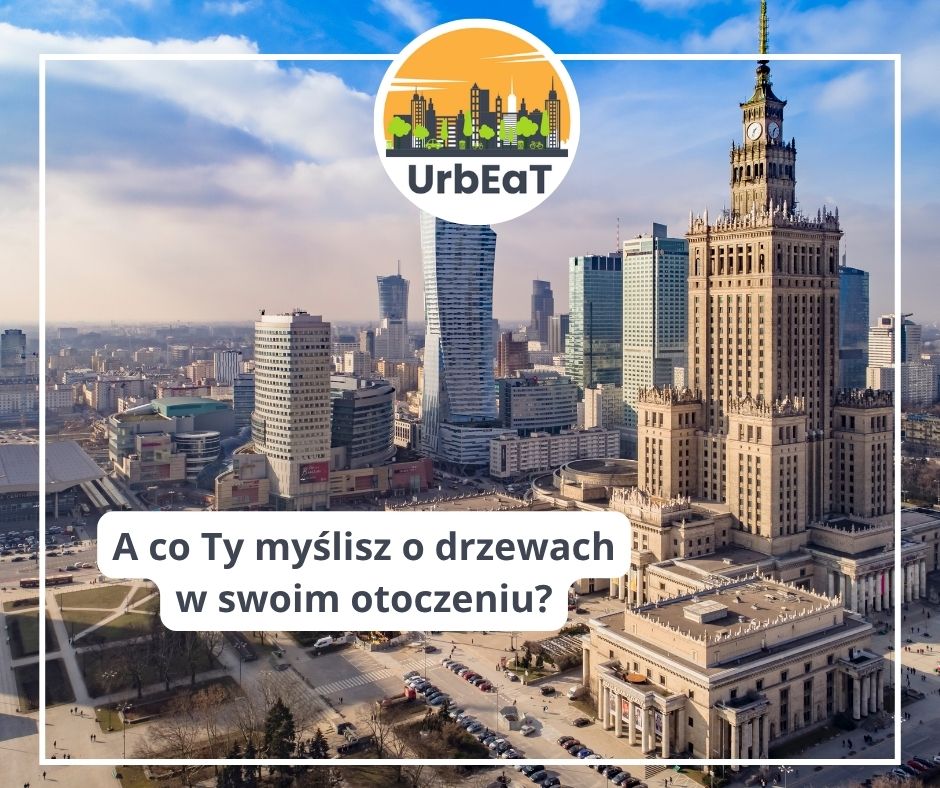
Already more than 200 people are taking part in our survey, but we are still missing the respondents most at risk of being in excessively high temperatures during heat waves. Find out if you live in an area at risk:
If you live in such an area and are over 50 years old own an Android or Apple phone and use it on a daily basis, be sure to join our survey!
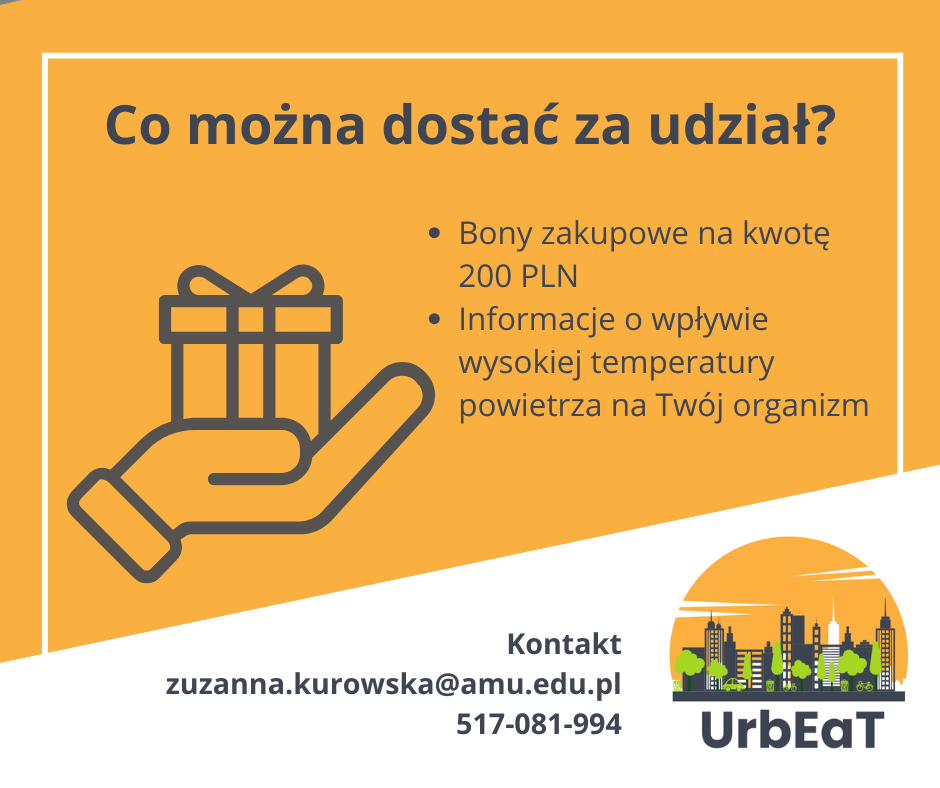
What does the study consist of?
- You meet with the researcher for an initial meeting (it will take 60-90 minutes )
- For 3 weeks, you complete short (1-2 minute) surveys on the mobile app
Your participation can help us understand how to reduce the risks associated with heat waves around your residence. Don't wait, contact us!
Contact: zuzanna.kurowska@amu.edu.pl, 517-081-994
And we are waiting for people who want to participate. If you meet the conditions below and would like to participate in the study, be sure to contact us!
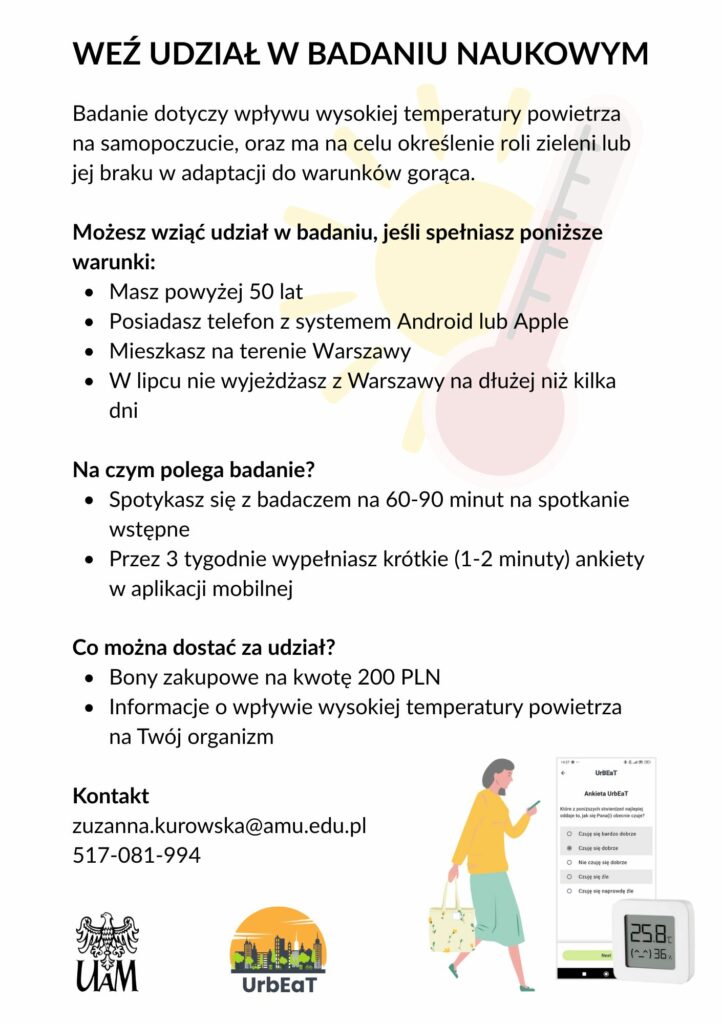
The surveys are conducted in three urban Local Climate Zones (LCZs) - to see if you live in an area within the range of at least one use the app below:
On December 20, 2024, a meeting was held between members of the project team and the Project Advisory Committee, composed of:
- Prof. Krzysztof Blazejczyk (Institute of Geography and Spatial Planning of the Polish Academy of Sciences)
- Dr. Sophia Boni (Institute of Anthropology and Ethnology, Adam Mickiewicz University)
- Prof. Magdalena Kuchcik (Institute of Geography and Spatial Planning of the Polish Academy of Sciences)
- Joanna Heyda (Head of the Climate Policy Department of the City of Warsaw)
The meeting discussed the research procedure, the project schedule and key discussion topics that are related to the success of the research project.
On November 21, 2024, a person was selected for the position of second doctoral student within the UrbEaT research project.
The competition was won by Abdurrahman Zaki, whose dissertation will focus on comparative applications of geospatial and citizen perception data through the integration of remote sensing and geostatistical methods.
On September 26, 2024, a person was selected for the position of doctoral student within the UrbEaT research project.
The competition was won by Zuzanna Kurowska, who will conduct her dissertation on the study of thermal comfort and adaptive behavior of the elderly using Experience Sampling and agent modeling methods.
On June 1, 2024, the student selected in the UrbEat research project scholarship competition was selected. The competition was won by Zuzanna Kurowska.
Zuzanna Kurowska is a graduate of Sociology at Adam Mickiewicz University. Her master's thesis dealt with the topic of student housing, simulating the student housing market using an agent-based modeling method.
On June 10 at 10:00 am we invite you to the last scientific seminar of this academic year! This time we will look at how the effects of climate change affect urban residents.
Especially vulnerable to the effects of climate change, are the elderly, and it is to them that the presentation will be dedicated. During the seminar, Dr. Zofia Boni will present the results of the EmCliC Project, carried out in Warsaw and Madrid, and concerning the Impact of heat on the daily lives of seniors.The research involved various scientific fields, and the results showed how older urban residents cope with the new conditions, using their embodied knowledge and adaptation strategies.
This time we invite you to a live meeting at the Department of Sociology at UAM, building C, room 112.
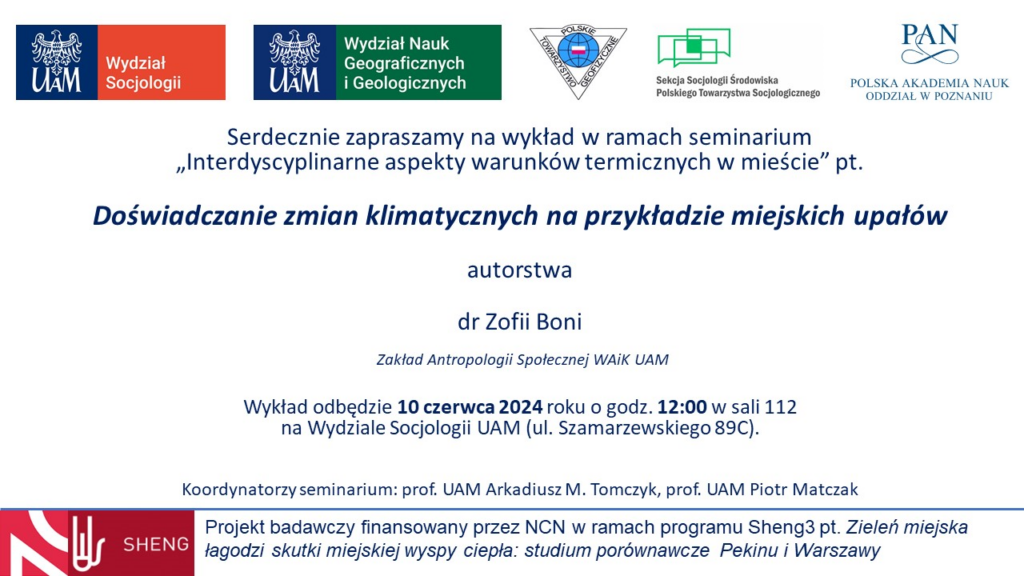
Dear Sirs,
You are cordially invited to a lecture by Prof. Ewa Bednorz entitled. Heat waves in the city on the example of Poznan, which will be held on May 24 at 12:00.
The lecture will be held remotely on the MS Teams platform. Registration for the lecture is available at the link: https://urbeat.site/seminaria-naukowe/.
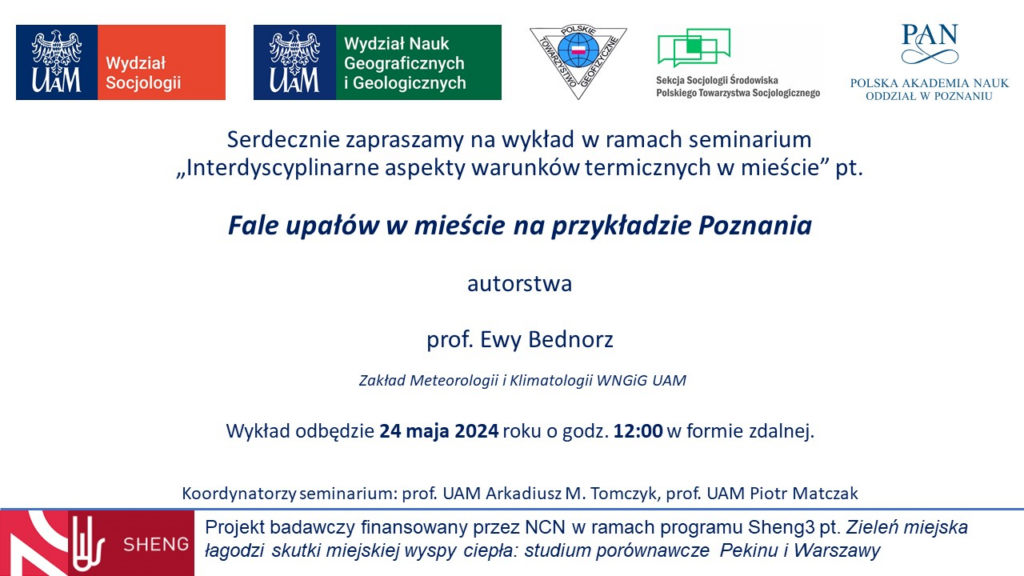
Dear Sirs,
You are cordially invited to a lecture by Prof. Marta Jankowska entitled Is home where the heat is? Comparing residence-based with time-weighted mobility-based measures of microclimate exposure in San Diego, California, to be held on May 10 at 12:00 pm.
The lecture will be held remotely on the MS Teams platform. Registration for the lecture is available on our website in the section scientific seminars.
